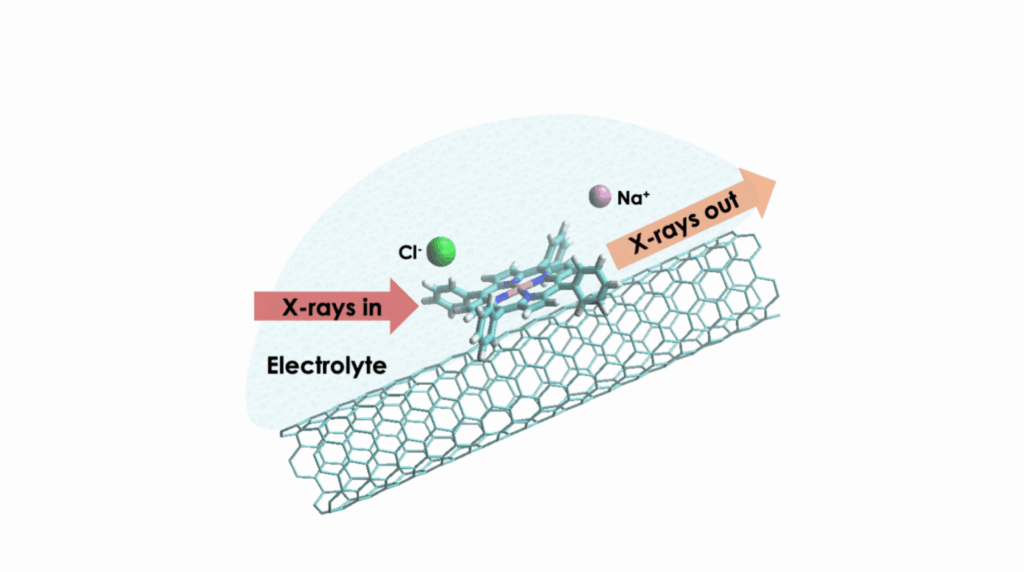IWEAKI
Identification of Weak Interactions at the Solid-Liquid Interface
Transition metal macrocycles are promising electrocatalysts for the conversion of small molecules (H₂O, CO₂, O₂, NO₃²⁻) into valuable products. Their implementation into large-scale devices, however, requires embedding them into catalytic films that offer good electrical conductivity, efficient mass transport, and long-term chemical and mechanical stability. This heterogenization process typically involves the non-specific adsorption of these macrocyclic catalysts onto carbon-based conductive additives. Although catalyst-support interactions have been shown to play a critical role in electrocatalytic reactions, no clear rationale has yet been proposed to explain this effect.
The IWEAKI project aims to observe and identify weak interactions between molecular electrocatalysts and carbon-based additives used for their heterogenization into catalytic films. A method combining X-ray absorption spectroscopy and theoretical calculations will be developed to predict, based on simple measurements, the structure of a heterogenized molecular system—and consequently, its catalytic activity. This approach will be applied to commonly used iron and cobalt macrocycles, which are known to be efficient for small molecule activation.


